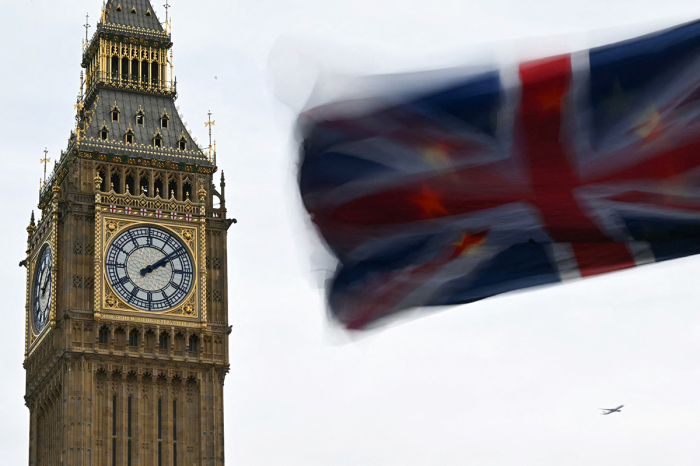UK Christian group praises Parliament for 'unprecedented' opposition to conversion therapy ban
'This has never previously happened'

A Christian advocacy group is expressing gratitude for the number of peers in the House of Lords that have spoken out against a bill that would ban the practice of so-called “conversion therapy,” which it warns could have drastic implications for religious liberty and free speech.
In a statement released Thursday, the U.K.-based Christian Concern described the debate that took place on House of Lords Bill 5 in Parliament last week as a “historic first.” According to the advocacy group, “This was the first time in British history that more politicians in Parliament opposed a conversion therapy ban than supported one. This was also an international first, as this has never previously happened elsewhere either.”
As the comments from Christian Concern suggest, House of Lords Bill 5 would “prohibit sexual orientation and gender identity conversion therapy.”
The measure defines conversion therapy as “any practice aimed at a person or group of people which demonstrates an assumption that any sexual orientation or gender identity is inherently preferable to another, and which has the intended purpose of attempting to — (a) change a person’s sexual orientation or gender identity, or (b) suppress a person’s expression of sexual orientation and gender identity.”
If enacted, violators of the ban on conversion therapy could find themselves subject to “a fine not exceeding level 5 on the standard scale.” There is no maximum penalty for those who are found guilty of level 5 offenses, meaning that violators could face “unlimited” fines.
Members of the House of Lords engaged in a debate on Bill 5 last week. As Christian Concern explained, 29 members of the House of Lords expressed opposition to the measure, while 15 spoke out in favor of it. A record of the debate maintained on the Parliament’s website shows that the debate lasted nearly five hours.
The transcript of remarks made in the House of Lords identifies the 29 members speaking out against the measure as 15 members of the Conservative Party, three members of the Labour Party, one member of the Liberal Democratic Party, four non-affiliated members, four crossbenchers who belong to minor political parties, one member of the Democratic Unionist Party and one bishop of the Church of England sitting in the chamber.
Meanwhile, declared support for the bill came from six members of the Liberal Democratic Party, four members of the Labour Party, two crossbenchers, one member of the Conservative Party, one member of the Green Party and one bishop sitting in the chamber.
“It is encouraging to see so many parliamentarians speaking common sense on an extreme bill drafted on ideology rather than reality,” said Christian Concern Chief Executive Andrea Williams after the debate. “As many peers noted, there is no place in a civilized society to criminalize parents for protecting their children from life altering puberty-blockers.”
Williams also declared, “There is no place for criminalizing consensual conversations” or a Christian for “advising their friend to follow biblical sexual morality.” Insisting that “abusive or coercive practices in any setting are already illegal” and warning that “any conversion therapy bill is an attack on fundamental freedoms,” Williams concluded that the measure was “not needed.”
Christian Concern elaborated on its concern with the bill, which spans only two pages, in a briefing submitted to parliamentarians ahead of last week’s debate. “The wording of the bill makes clear that any person — not just any therapist — could be criminalized due to being deemed to have tried to change a person or group’s sexual orientation or gender identity or suppress their expression thereof.”
Examples of actions Christian Concern believes will be criminalized if the bill became law include “consensual private conversations about sexuality and gender issues” such as “conversations between parents and their own children or indeed any family and household members, therapists and their clients, clergy and members of their churches or other religious bodies; life coaches; facilitators and members of self-help groups; doctors or healthcare workers and their patients.”
The advocacy group also warned that parents who refuse to "allow their children to cross-dress” could find themselves in trouble if the bill passes along with those who advise people to “stay celibate until in a long-term relationship” or hold “conferences and educational events on issues around sexuality and gender.”
The bill's sponsor, Baroness Burt of the Liberal Democratic Party, has suggested that the measure will not lead to the widespread prosecution of people opposed to LGBT ideology.
In comments recorded in the House of Lords Library briefing on the measure, Burt stressed that “it’s important to differentiate between psychological practice or religious advice and conversion therapy.” Burt asserted that “a therapist, for example, who is exploring gender dysphoria with a young person in good faith — with no predetermined goal to change how that young person ought to be — shouldn’t be penalized.”
“That’s why my bill would require the police to demonstrate both action and motivation when attempting to prosecute in relation to this offense,” she added.
Christian Concern’s briefing pushes back on her analysis: “The problem here is that this police involvement is nowhere mentioned on the face of the bill. It assumes that people would be reporting therapists — and anyone else deemed to be involved in ‘the practice of “conversion therapy”’ to the police for engaging in consensual private conversations with their own clients.”
The House of Commons, the other chamber in the U.K.’s bicameral Legislature, is scheduled to hold a second reading on its version of the bill on March 1. As for the House of Lords’ version of the bill, it is headed to a committee of the whole House, where all members will be allowed to consider it.
Ryan Foley is a reporter for The Christian Post. He can be reached at: [email protected]




























